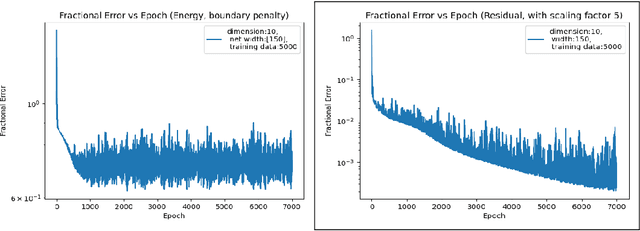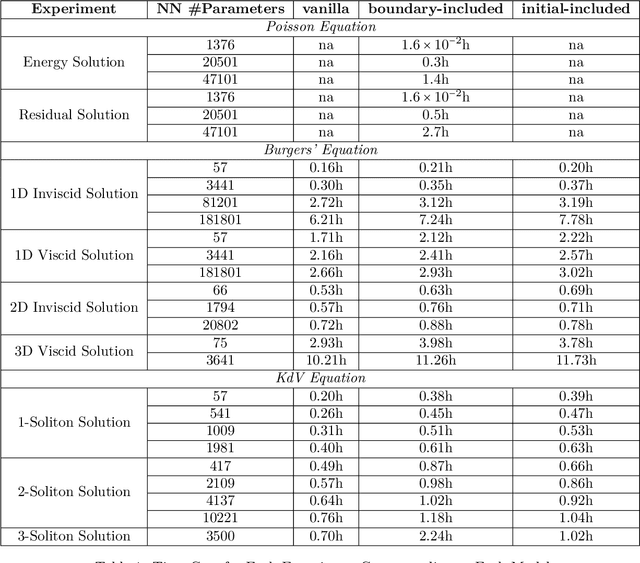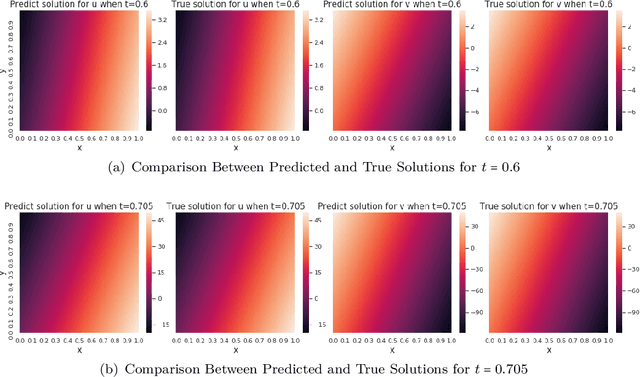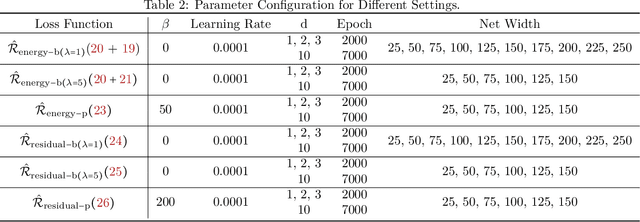Improving PINNs By Algebraic Inclusion of Boundary and Initial Conditions
Paper and Code
Jul 30, 2024



"AI for Science" aims to solve fundamental scientific problems using AI techniques. As most physical phenomena can be described as Partial Differential Equations (PDEs) , approximating their solutions using neural networks has evolved as a central component of scientific-ML. Physics-Informed Neural Networks (PINNs) is the general method that has evolved for this task but its training is well-known to be very unstable. In this work we explore the possibility of changing the model being trained from being just a neural network to being a non-linear transformation of it - one that algebraically includes the boundary/initial conditions. This reduces the number of terms in the loss function than the standard PINN losses. We demonstrate that our modification leads to significant performance gains across a range of benchmark tasks, in various dimensions and without having to tweak the training algorithm. Our conclusions are based on conducting hundreds of experiments, in the fully unsupervised setting, over multiple linear and non-linear PDEs set to exactly solvable scenarios, which lends to a concrete measurement of our performance gains in terms of order(s) of magnitude lower fractional errors being achieved, than by standard PINNs. The code accompanying this manuscript is publicly available at, https://github.com/MorganREN/Improving-PINNs-By-Algebraic-Inclusion-of-Boundary-and-Initial-Conditions
 Add to Chrome
Add to Chrome Add to Firefox
Add to Firefox Add to Edge
Add to Edge